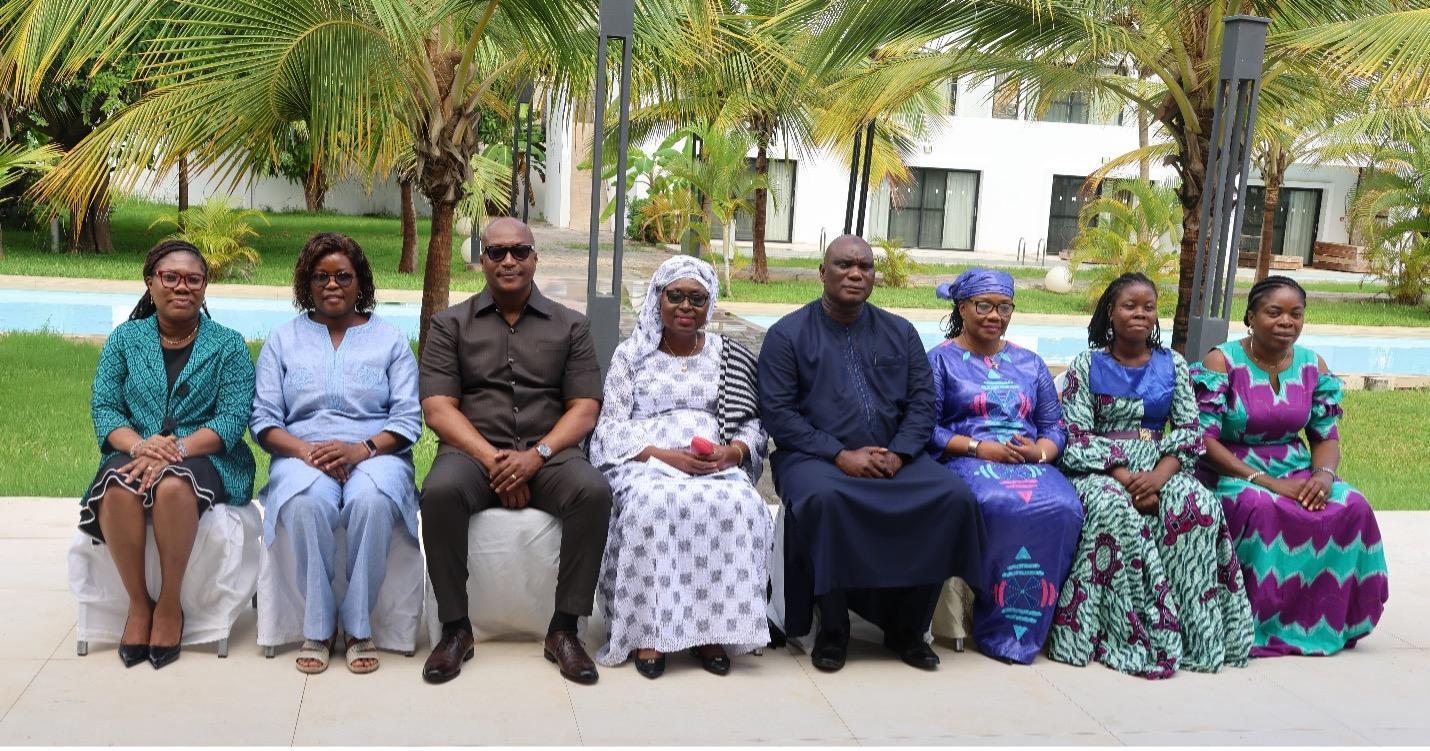Africa-Press – Ghana. Stakeholders from across West Africa have converged in Banjul for a specialised training programme aimed at enhancing the monitoring and reporting of the Women, Peace and Security (WPS) Agenda in Africa.
The five-day regional training, which opened on Monday, is aimed at strengthening national capacities to implement and report on the WPS Agenda using the African Union’s Continental Results Framework (CRF).
Organised by the Kofi Annan International Peacekeeping Training Centre (KAIPTC) in collaboration with The Gambia’s Ministry of Gender, Children and Social Welfare, the training is supported by the Swedish International Development Cooperation Agency (SIDA) through the Government of Sweden.
It has brought together WPS focal points and institutional representatives from across the region to build their skills in data collection, analysis, and strategic reporting in line with the CRF.
The CRF is a key tool adopted by the AU Peace and Security Council in 2018 to close the gap between policy and practice.
Facilitated by KAIPTC’s Women, Youth, Peace and Security Institute, the training is guided by a specialised manual developed jointly with the AU Office of the Special Envoy on Women, Peace and Security.
The initiative is significant in advancing gender-responsive peacebuilding in Africa and reinforces KAIPTC’s leadership in supporting effective implementation of the Women, Peace and Security Agenda.
Opening the session, Air Commodore David Akrong, Acting Commandant of KAIPTC, reaffirmed the Centre’s commitment to promoting peace and security through targeted capacity building.
“As we gather in Banjul today, we recognize the critical role that WPS focal persons play in broadening the Agenda across our continent,” he said.
He stated, “The National Action Plan is not just a strategy – it reflects our collective commitment to gender equality and inclusive peacebuilding in Africa.”
Air Commodore Akrong emphasised the importance of effective monitoring and reporting in fostering a safer, more just and equal society.
He urged participants to remain committed to women’s empowerment and serve as catalysts for peace, justice and accountability.
“The WPS Agenda is more than just a moral commitment; it is a strategic requirement for establishing resilient and peaceful societies,” he added.
The training adopts a ‘trainer-of-trainers’ model, equipping participants with the tools to replicate the knowledge and methodologies within their own countries and institutions.
It aims to build participants’ capacity to apply CRF indicators, prepare reports on the implementation of United Nations Security Council Resolution (UNSCR) 1325, and address systemic challenges in gender-responsive peacebuilding.
Ms Fatou Kinteh, The Gambia’s Minister of Gender, Children and Social Welfare, who welcomed the initiative, shared the country’s progress and ongoing challenges in implementing the WPS Agenda.
“Limited funding, low representation of women in decision-making, and patriarchal societal norms continue to hinder full implementation,” she said.
She added, “This training is critical to help address these barriers through harmonised data collection and effective reporting.”
Mr Serign Njie, The Gambia’s Minister for Defence, highlighted the complex and evolving security landscape in Africa, noting that women often face the harshest impacts but also play leading roles as peacebuilders.
“From violent extremism to climate-induced displacement, women are bearing the brunt. Yet they are also leading as peacebuilders and human rights defenders,” he said.
He further stated that, “Without appropriate mechanisms to measure and track their participation, our policies risk being rhetorical rather than transformational.”
He urged participants to view themselves not only as professionals but as “ambassadors of change” with a duty to integrate gender accountability across national and regional systems.
Also present at the opening ceremony were Mrs. Miatta Lilly French, ECOWAS Country Representative, and Madam Evelyn Edromah, Deputy Resident Coordinator of the United Nations Development Programme (UNDP), who both called for active engagement and encouraged participants to use the training to strengthen national monitoring and reporting systems.
Participants were drawn from a wide range of institutions, including the National Assembly, Gambia Police, Red Cross, University of The Gambia, Ministry of Justice, Immigration Department, National Youth Council, West Africa Network for Peacebuilding (WANEP), ROAJELF, and the African Commission for Human Rights and Security.
For More News And Analysis About Ghana Follow Africa-Press







